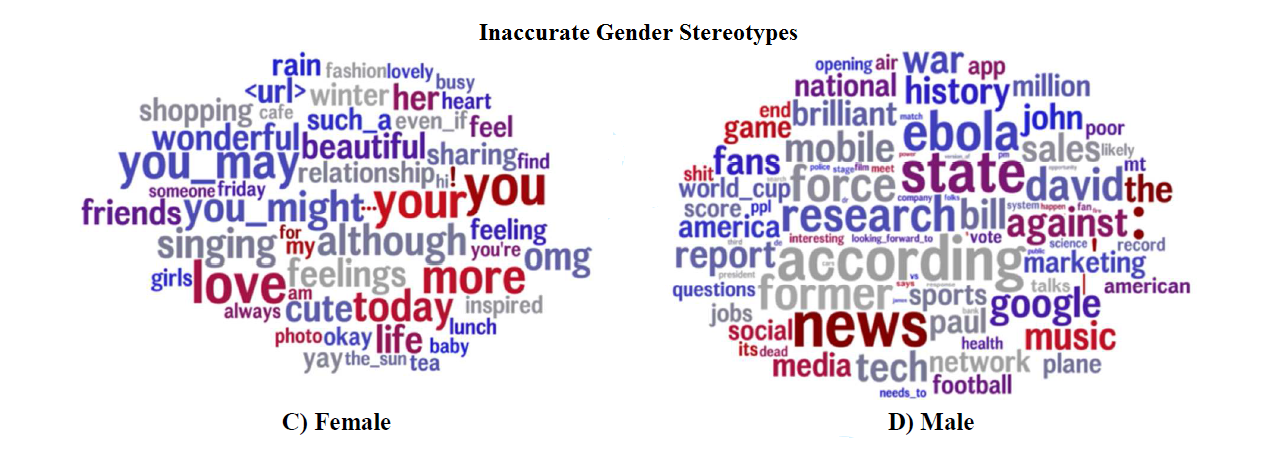Gender stereotypes study debunks centuries-old assumptions that have plagued men and women
‘Almost every woman who posted about technology was inaccurately believed to be a man,’ say researchers

Your support helps us to tell the story
From reproductive rights to climate change to Big Tech, The Independent is on the ground when the story is developing. Whether it's investigating the financials of Elon Musk's pro-Trump PAC or producing our latest documentary, 'The A Word', which shines a light on the American women fighting for reproductive rights, we know how important it is to parse out the facts from the messaging.
At such a critical moment in US history, we need reporters on the ground. Your donation allows us to keep sending journalists to speak to both sides of the story.
The Independent is trusted by Americans across the entire political spectrum. And unlike many other quality news outlets, we choose not to lock Americans out of our reporting and analysis with paywalls. We believe quality journalism should be available to everyone, paid for by those who can afford it.
Your support makes all the difference.Inaccurate gender stereotypes about the kind of words men and women use have been exposed by a new psychological study.
The researchers asked people to make judgements about Twitter users based solely on their posts.
This included guessing their gender, age, education level and political views.

Words like “force”, “news” and “research” were wrongly categorised as male, while “love”, “cute” and “beautiful” were among those mistakenly considered to be female.
The so-called “male words” were actually written by women and vice versa, but the study’s participants tended to decide they were indicative of the person’s gender.
Some stereotypes contained a degree of truth, but people had a tendency to place too much weight on them, according to the researchers, from the US, Australia and Germany.
Dr Jordan Carpenter, who led the work, said: “These inaccurate stereotypes tended to be exaggerated rather than backwards.
“For instance, people had a decent idea that people who didn’t go to college are more likely to swear than people with PhDs, but they thought PhDs never swear, which is untrue.
“One of our most interesting findings is the fact that, when people had a hard time determining someone’s political orientation, they seemed to revert, unhelpfully, to gender stereotypes, assuming feminine-sounding people were liberal and masculine-sounding people were conservative.”
Men did tend to tweet more about technology than women, but this led the test subjects to make mistakes when trying to guess people’s gender.
“It’s true: men do post about technology more than women,” Dr Carpenter said.
“However, this stereotype strongly led to false conclusions: almost every woman who posted about technology was inaccurately believed to be a man.”
In a paper in the journal, Social Psychological and Personality Science, the researchers wrote that stereotypes were “overly salient in people’s judgments about men and women”.
They argued that this should make people who defend the use of stereotypes think again.
“People on both sides of the ‘appropriate because accurate’ debate should agree that this stereotype, along with the others we highlight, is inappropriate and should be intervened against,” the researchers wrote.
Join our commenting forum
Join thought-provoking conversations, follow other Independent readers and see their replies
Comments